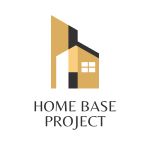Jump to:
Buying your dream home can be challenging, especially with inflation and soaring mortgage prices. With rates soaring above 7%, applications continue to decline, but there are still some ways to go about it. If it’s your first time buying a home in South Carolina, let us help you navigate the process and make it easier for you.
Look at Your Financial Health
Before you can buy your home, you must ensure you are financially ready to purchase your home; you have to pay property tax, homeowners insurance, private mortgage insurance, and maintenance care. For financial preparedness, look at the following:
- Home affordability: By considering your location, income, down payment, and debts, home affordability calculators help you determine the cost of homeownership and monthly mortgage payments.
- Credit score: You can get your credit score reports from Equifax, Transunion, or Experian – the three credit bureaus or work with your credit card company or bank to access your credit report for free. This will determine your mortgage rates: with higher credit scores, you have lower interest rates.
- Debt to income ratio (DTI): South Carolina mortgages use DTI to evaluate the mortgage amount they’re willing to lend you. You can calculate it by dividing your monthly debts by your gross monthly income.
- Steady employment history: Lenders check employment history, work history, and job profile to ensure safe investment and a quick home loan.
Planning for Your Down Payment and Closing Costs
Typically, a 20% downpayment can get you a conventional loan with a low-interest rate. If you put down less money upfront, your lender may require you to purchase private mortgage insurance. You also have closing costs: out-of-pocket expenses you pay to buy, own, and finance a house. They are the fees paid at the closing of a real estate transaction.
South Carolina has a homebuyer assistance program that provides down payment assistance or helps cover your closing costs. They may have eligibility requirements such as investing a minimum of $500 into a home purchase or having a household income below or at 80% of the area median income.
Get Pre Approval Letters for Your Mortgage
The pre-approval stage determines the money you can borrow to purchase a home in South Carolina, and the pre-approval letter shows you working with a lender to finance your home. For pre-approval, these are the home loans available:
- VA (Veterans Affairs) or USDA (United States Department of Agriculture) loans: encourage rural and suburban homeownership and offer no or zero down payment to low-income buyers.
- FHA (Federal Housing Administration) loan requires a 3.5% down payment. They provide loans to buyers with higher DTI ratios and lower credit scores. Low credit scores mean a higher interest rate.
- Conventional 97 loans: The program is named after the 97% home value financed by your lender after you make a 3% down payment.
Find Your Real-Estate Agent (optional) and Attorney
Traditionally, real estate agents help you buy homes, but it’s not necessary. You can find FSBO (For sale by owner) on free FSBO listing sites, such as Craigslist, Facebook marketplace, and ForsSaleByOwner.com, where You can make offers online or schedule your in-person showing. A real estate agent can offer you objective information, know market requirements, and help you avoid costly mistakes and delays.
It is important to note that South Carolina requires a real estate attorney to be involved during the transactions and be present with you during the closing, as real estate closing is a practice of law. The attorney assists with:
- Preparing documents
- Recording legal documents
- Conducting title search
- Applying for title insurance
- Reviewing purchase contract
- Disbursing funds
- Supervising closing
Make an Offer and Close the Sale
Your offer should include:
- Proof of funds for downpayment
- Preapproval letter
- Offer price
- Home buying contingencies (this includes property inspection and home appraisal)
- Terms of purchase
You can hire a home inspector to identify any issues or defects in the property, such as mechanical or structural issues, and demand any repairs from the seller or back out of the deal. Your lender also requires a home appraisal to ensure they aren’t lending at an amount greater than the fair market value. By waiving contingencies or making cash offers, you can make your offer attractive to sellers. After accepting your offer, both parties will sign a purchase agreement and open an escrow account (a legal arrangement between two parties when a third party holds the financial payment).
Three days before the closing, your lender gives you the closing disclosure, which contains details on the mortgage type, loan terms, interest rates, monthly payment, and the money you need to bring to the closing. You will wire the closing costs and down payment to the escrow, which transfers to the sellers after deductions, sign the paperwork, and get your keys!
Endnote
Your home is not just a financial investment but a place to call your own. In your search for your dream home, check your financial health first, plan your down payments and closing costs in advance, keep your credit score high, and stay on top of your expenses, and you can make your home-buying process easy.

